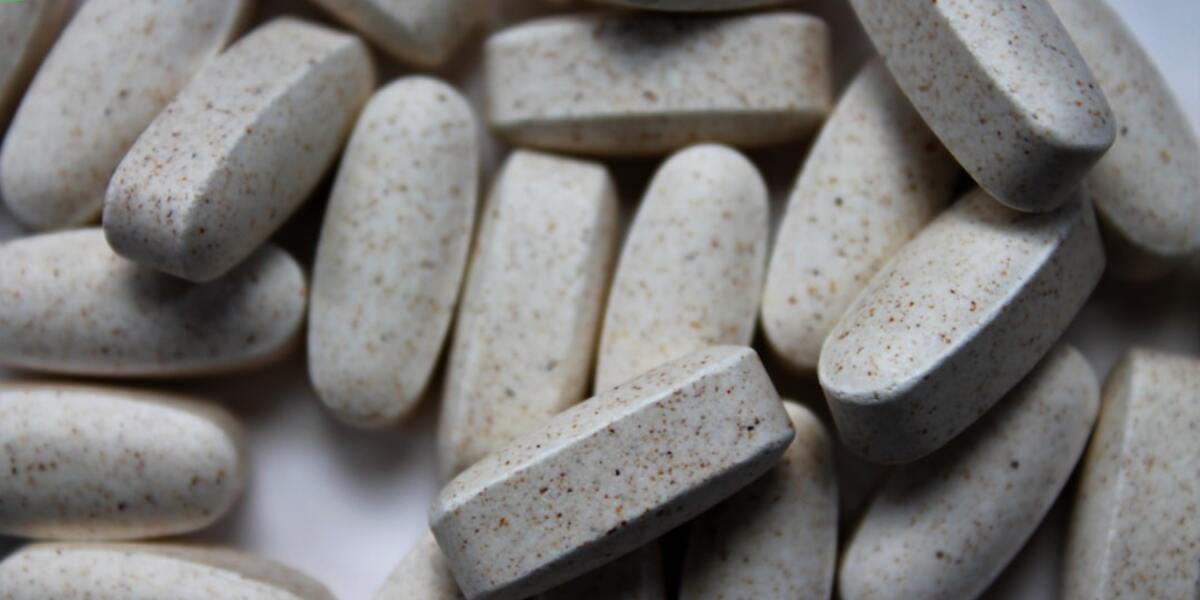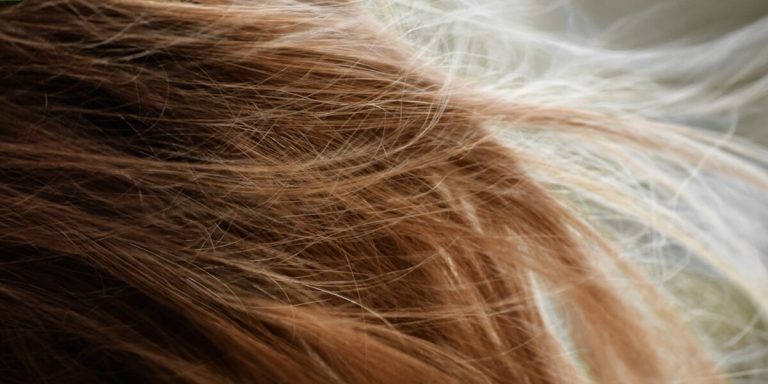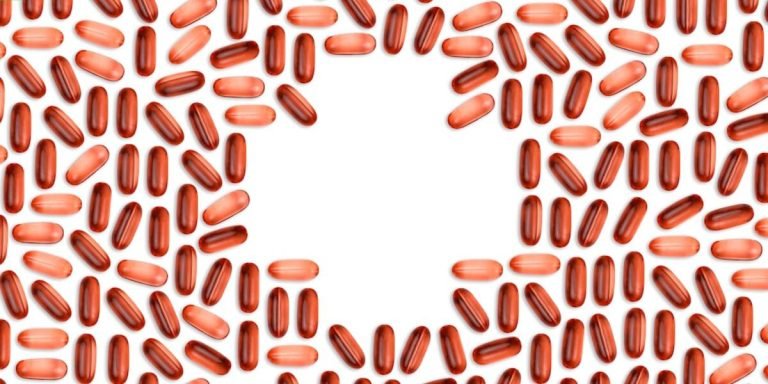Vitamin D3 and Hair Growth: Unveiling the Connection
The mirror often reflects our hair as a measure of both health and beauty. However, many people turn toward various treatment methods when the reflection becomes less than satisfactory due to thinning or balding. One such option is harnessing the power of certain vitamins for potential hair restoration qualities—one potent vitamin being Vitamin D3.
We will now explore how Vitamin D3 impacts hair growth. This fat-soluble nutrient may be more impactful on your tresses than you initially thought.
However, shedding light on Vitamin D3 reveals intriguing facts about its role in maintaining overall wellness and specifically enhancing hair growth through renewed follicular activity.
Did you know?
Did you know? A study published in the Dermatology Online Journal found that Vitamin D3 significantly promoted hair growth by creating new follicles and awakening dormant ones.
Understanding the Role of Vitamin D3 in Promoting Hair Growth
Vitamin D3 plays a significant role in promoting hair growth and has gained increased attention recently. It is crucial for creating new hair follicles where hairs can grow. Additionally, it reactivates dormant or old cells in your scalp that were previously non-functional.
Several conditions, including chronic hair loss or alopecia areata, could be due to a vitamin D3 deficiency. One might experience slower hair growth or weakened roots without optimal levels of this crucial nutrient. Scientific studies support these claims and highlight the importance of dietary changes and supplements for healthier hair.
We should not overlook the sources of vitamin D3, as they play key roles. These sources primarily include sunlight exposure, followed by diet with foods such as fish oils and egg yolks. Additionally, health supplements can provide vitamin D3 if individual lifestyle factors or geographical necessities make it necessary.
But remember always consult with healthcare professionals before any addition into routine habits so as you get only benefits without detriments on your journey towards luscious and strong mane powered up by Vitamin D3!
The Science Behind Vitamin D3 and Follicular Health
Vitamin D3, known for promoting bone health and immune function, also plays a vital role in follicular well-being and hair growth. It works at the cellular level of the scalp, influencing millions of tiny pockets called hair follicles.
Hair roots, or follicles, don’t merely anchor your strands in place; they are dynamic mini-factories that produce new cells. These new cells bundle up to form emerging strands, pushing old cells outwards—what we recognize as hair growth. When these factories run slow due to a lack of resources, Vitamin D3 steps in to help.
Recent research from 2021 to 2023 shows that vitamin D receptors (VDRs) exist in the skin layer of hair follicles at all stages of their life cycle. These VDRs bind with active forms of vitamin D in our blood plasma, controlling the process’s efficiency. Each component works like perfectly fitting jigsaw pieces to promote healthy and voluminous tresses.
Recognizing Signs of Vitamin D Deficiency and its Impact on Hair
Vitamin D, specifically D3, plays a crucial role in promoting healthy hair growth. When this essential nutrient is scarce in our bodies, certain signs of deficiency surface – one profound impact being on the health and vitality of your hair.
The first sign to spot Vitamin D deficiency is experiencing unexpected or increased episodes of hair loss. While it’s normal to lose around 100 strands a day due to the natural shedding process, excessive loss could be related to low levels of Vitamin D.
Secondly, if your body lacks Vitamin D, you might see your hair thinning or bald patches appearing suddenly. This happens because Vitamin D receptors normally signal the follicles; without them, this regulation gets disrupted, resulting in reduced volume and spots with no hair growth.
Furthermore, chronic fatigue might sound unrelated but surprising as it sounds; these two are closely knitted together! Adequate sleep promotes better overall functioning including optimal nutrition absorption which includes vitamins like the vital ‘D’.
An impaired immune system might be responsible if you’re getting sick more often than usual. Essential nutrients at low levels can weaken your immunity, affecting how quickly your scalp heals. Typically, damaging environmental factors like sun exposure and stress cause this harm, which can result in hair loss and patchy areas on your head.
Essential Vitamins Complementing Vitamin D3 for Optimal Hair Growth
To achieve optimal hair growth, it’s essential to understand how vitamins affect hair health. Vitamin D3 particularly plays a crucial role by stimulating both new and old hair follicles. A deficiency in vitamin D3 can slow down growth and may even contribute to conditions such as alopecia or pattern baldness.
Vitamin D3 plays an essential role in supporting healthy hair, but it’s crucial to note that other vital nutrients also contribute significantly. These complementary vitamins work synergistically with vitamin D3 to nourish each hair strand from the core and promote overall scalp vitality.
Vitamins A, B-complex (especially biotin), C,E along with minerals such as Iron Zinc Selenium are some which collaborate effectively with Vitamin D3.
Biotin: A Vital Co-Factor for Lustrous Locks
Biotin, also known as Vitamin B7 or H, is a powerhouse when it comes to optimizing hair growth and improving your overall hair health. It’s well-known for its role in enhancing the body’s keratin infrastructure – keratin being a type of protein that makes up our hair, skin and nails.
Taking biotin with Vitamin D3 (cholecalciferol) can significantly speed up your hair growth. Experts’ research on ‘Hair Growth Vitamins’ consistently shows that these two vitamins synergistically promote quicker and stronger hair growth.
In 2023, advancements in nutritional science have provided us with greater understanding of nutrient benefits. Recent studies show that consuming enough biotin daily can correct deficiencies leading to brittle strands or slow-growing hair. Boosting your biotin intake beyond normal levels can lead to fuller and shinier hair due to stronger follicles.
Omega-3 Fatty Acids: Nourishing the Scalp Synergistically with Vitamin D3
Omega-3 fatty acids boost hair growth alongside Vitamin D3. The modern diet often lacks omega-3s, overshadowed by the excess omega-6 fats in processed foods. To benefit your overall well-being and promote flourishing locks, focus on increasing your intake of these essential healthy fats.
Omega-3s work with Vitamin D by enhancing the permeability of cell membranes, including skin, allowing vitamins like D to enter cells and perform vital functions. This partnership can rejuvenate dormant or underperforming follicular units, leading to a full head of voluminous hair.
To incorporate more Omega-3 fat in your daily routine check out some food options:
1) Seafood – Salmon and mackerel provide high levels.
2) Chia seeds – A plant-based source rich great if you’re vegan.
Strategies to Incorporate Vitamin D3 into Your Hair Care Regimen
Incorporate Vitamin D3 into your everyday care regimen to significantly improve your hair’s health and vitality. Recent research studies have convincingly proven that adequate levels of vitamin D3 stimulate new and old hair follicles. With sufficient levels in the body, it fuels stronger and faster-growing locks.
Implement this strategy effectively by not relying solely on sunlight, a natural source of Vitamin D3. Given our indoor-centric contemporary lifestyles, especially with the commonality of remote working in 2023, consider methods like diet modification or supplementation as pivotal roles.
Consume foods rich in Vitamin D to incorporate this crucial vitamin into your meals seamlessly:
- Fatty fish (salmon)
- Mushrooms
- Fortified dairy products
Dietary Sources vs. Supplements: Pros and Cons for Achieving Adequate Levels
As we strive to achieve healthy, robust hair growth, it’s crucial to monitor our intake of vital nutrients like Vitamin D3. Two primary sources dominate the conversation when discussing Vitamin D3: dietary options and supplements. Each source has its distinct advantages and potential drawbacks.
Natural food items rich in Vitamin D3 offer an organic supply chain for essential vitamins. Top the list with salmon, a powerhouse provider of vitamin D, and include other fatty fish such as tuna and mackerel. Consume fortified foods like milk, orange juice, and grain products to get a measurable dose of vitamin D without the health risks associated with over-supplementation.
However on the flip side , not everyone appreciates seafood flavors while some individuals may suffer from lactose intolerance limiting their dairy consumption thereby putting them at risk of low nutrient intake levels despite consuming vitamin-rich diets.
In conclusion both ways come pros cons . Adjusting incorporating fruits vegetables diet necessitates conscious eating efforts could time-consuming costly however provides additional benefits associated clean living Supplements require less effort but caution must taken avoid overuse .
Topical Treatments Enriched with Active Forms of Vitamin D₃
When it comes to fostering hair growth, incorporating Vitamin D3 (cholecalciferol) into your regimen can play a pivotal role. One way of achieving this is through topical treatments that are fortified with active forms of this essential nutrient.
Consider using specialized shampoos enriched with high concentrations of cholecalciferol. Clinical trials have proven their efficacy against hair fall-out issues or thinning due to vitamin deficiencies. Remember, consistency matters; use them at least 2-3 times a week for better results.
Besides shampoos, restorative serums can deeply nourish your follicles. These often contain compounds like pro-vitamin D and calcipotriene, which stimulate dormant follicular cells. This action promotes new hair strand emergence and enhances overall density.
Next up we have scalp masks – yet another system delivering nutritional support directly where it needs most while bypassing systemic side effects associated commonly when ingesting supplements orally.
Conclusion
The relationship between vitamin D3 and hair growth tells a story of internal nourishment. This humble yet potent nutrient does more than just nurture your follicles; it creates optimal conditions for healthier, stronger hair. So when you’re basking in warm sunlight or enjoying an egg yolk breakfast, remember – you’re also nourishing your hair!
Unlock luscious tresses by delving deeper into our website. Explore the vast information we offer on important hair growth vitamins and how they work together to magic even the most stubborn strands. Let science guide and drive your quest for beautiful hair!







